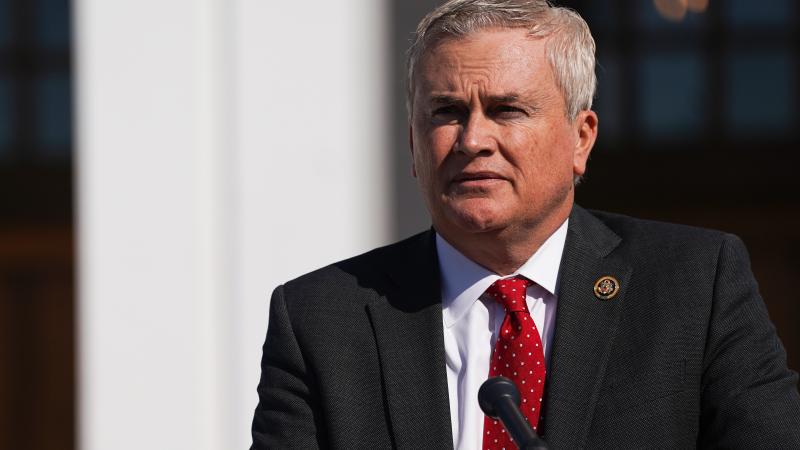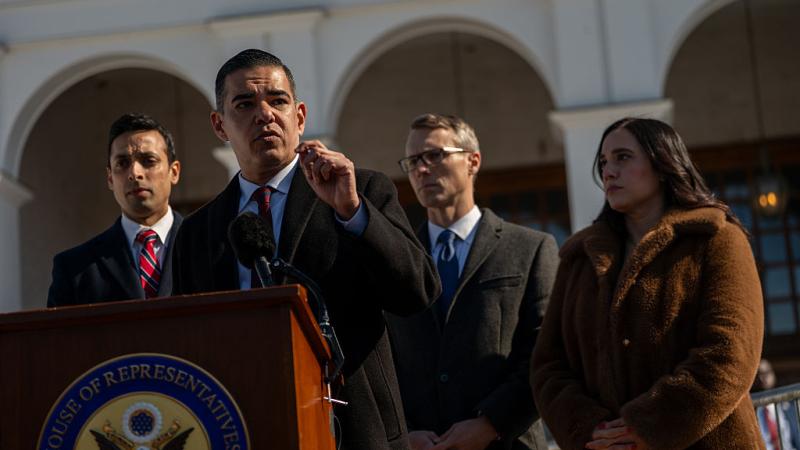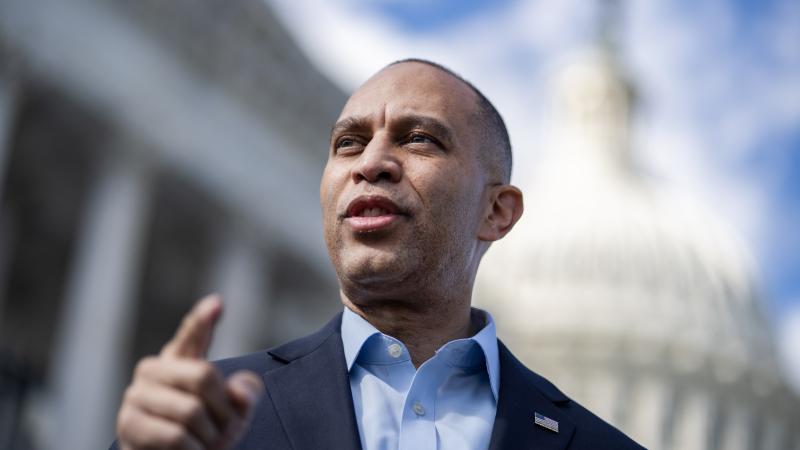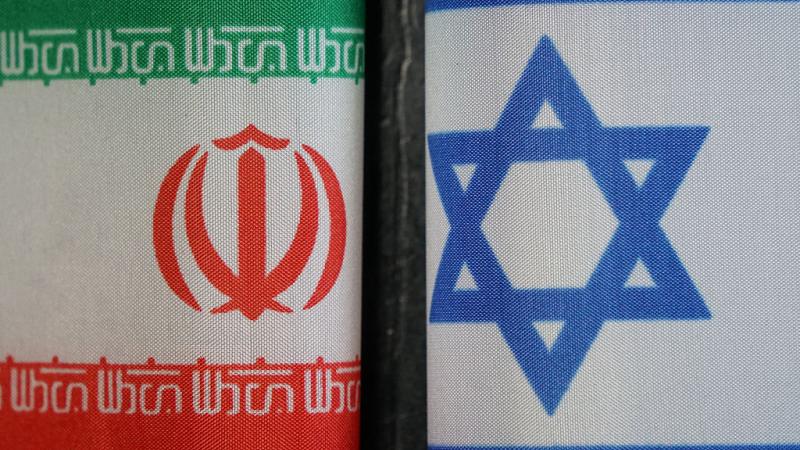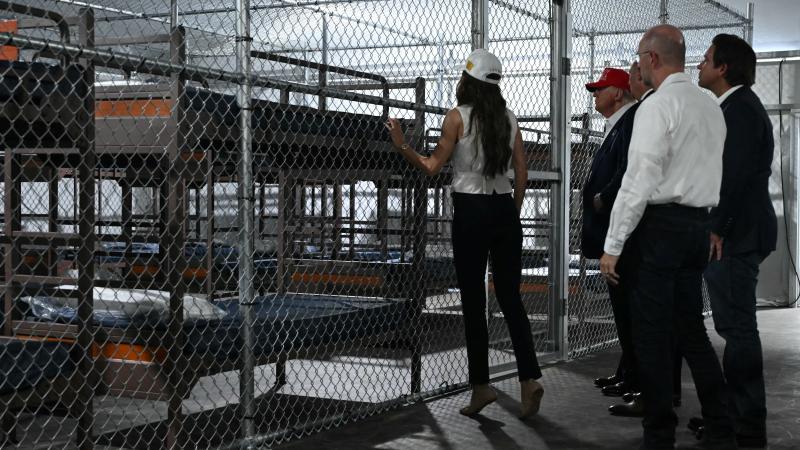Trump gave order to 'make sure' Jan. 6 rally was 'safe event,' Pentagon memo shows
Gen. Milley’s recollection undercuts months-long effort by Democrats to suggest Trump wanted to incite violence: many key questions left unanswered.
House Democrats' marquee summer show of primetime investigative hearings ended Thursday night where it began: unable or unwilling to answer essential questions about the Jan. 6 Capitol breach.
Chief among them: If Donald Trump wanted to incite violence that fateful day, as his critics suggest, then why did he order the Pentagon to have a large military force ready to quell a disturbance? And why did a Democrat-led Congress turn down the assistance of pop National Guard troops in the face of intelligence warnings about violence?
By their own admission, Democrats set up the hearings to evade such scrutiny. They declared any questions about what House Speaker Nancy Pelosi knew about the potential for Jan. 6 violence and when she knew it were off limits.
Secret Service agents were never called to testify in public about whether former White House aide Cassidy Hutchinson's story about Trump trying to force his limousine to go to the Capitol were true. And questions about how those in charge of Capitol security responded to FBI and Homeland Security pre-event warnings about potential violence were never asked, much less answered.
Instead, the Jan. 6 committee put on hearsay testimony from Hutchinson and released partial transcripts or video snippets of testimony without allowing Republicans or Trump's own lawyers to cross-examine witnesses or challenge the narrative offered to the American public.
"It's the first time this has happened in my lifetime since McCarthyism, and it's despicable," said famed Harvard law professor Alan Dershowitz, a lifelong Democrat who voted for Joe Biden in 2020. "The idea that they would interview this witness and allow her to testify to hearsay about the president jumping toward the wheel, without first asking the eye- and ear- witnesses. I've never heard of a lawyer doing that in my 60 years of practicing law. ... It's not only unethical, it's not only unfair, it's bad lawyering.”
Dershowitz said the committee Democrats and two anti-Trump Republicans — Liz Cheney and Adam Kinzinger — created a clear perception with their performance of being "partisan zealots" rather than truth-seekers.
Former career federal prosecutor David Sullivan said Thursday that the entire Jan. 6 accountability process — both at the Justice Department and the congressional hearings — raised questions of fairness and gave viewers a reason to tune out what proved to be "very scripted" interrogations. He said Democrats likely would have gained more credibility and traction if they had let Republicans offer contrary evidence and engaged in true cross-examination.
"Legal scholars are very troubled by the way these hearings are being conducted," Sullivan said. "There is no due process. For people who don’t have an agenda to promote, these [hearings] are Stalinist. And I hate using that term."
Throughout the summer, Democrats have argued that Trump intended and eventually succeeded in inciting the violence on Jan. 6. "The select committee has found evidence about a lot more than incitement here, and we're gonna be laying out the evidence about all of the actors who were pivotal to what took place on Jan. 6," Rep. Jamie Raskin (D-Md.) said at outset of the hearings.
But the hearings have been undercut by a fundamental fact: Trump's actions before the riot began included urging supporters to "peacefully and patriotically" express their opinions and ordering his top aides to ensure there was a large contingent of National Guard troops at the ready to ensure no trouble ensued.
A Capitol Police timeline obtained by Just the News shows the Trump Pentagon first offered National Guard troops to the Capitol Police on Jan. 2, 2021, four full days before the event. The police turned down the offer but then began to have second thoughts. The Capitol Police then asked their political minders — the House sergeant at arms chief among them — for permission to accept the troops on Jan. 4 but were turned down on the ground that such a show of force would create bad "optics," the records show.
But the most compelling piece of evidence that Trump wanted to thwart — rather than incite —violence is contained in a lengthy memo written by the Pentagon inspector general that chronicled the assistance the Defense Department offered Congress both ahead of and during the riot.
In it, the IG recounts a fateful meeting on Jan. 3, 2021 in the White House when then-acting Defense Secretary Christopher Miller and Gen. Mark Milley, chairman of the Joint Chiefs of Staff, met with Trump on national security matters.
The complete passage — hardly mentioned by Democrats at the hearings or the news media covering them — is worth absorbing in its entirety.
"Mr. Miller and GEN Milley met with the President at the White House at 5:30 p.m.," the IG reported. "The primary topic they discussed was unrelated to the scheduled rally. GEN Milley told us that at the end of the meeting, the President told Mr. Miller that there would be a large number of protestors on January 6, 2021, and Mr. Miller should ensure sufficient National Guard or Soldiers would be there to make sure it was a safe event. Gen Milley told us that Mr. Miller responded, 'We've got a plan and we've got it covered.'"
You can read that memo here:
In advance of the Jan. 6 rally, the president told the most senior civilian and uniformed leaders of the military he knew the event was going to draw a "large number of protestors," and he instructed the secretary of defense to ensure it was "safe" by having troops available. Democrats have not offered any evidence to counter that story.
The Pentagon memo also yields insight into the mindset of the Democrat-led Congress, top military officials and the local police before Jan. 6. Key players, it reveals, repeatedly raised concerns about accepting the offer of National Guard help, fearing it would create the perception of a military coup or martial law as the election results were certified.
Army Secretary Ryan McCarthy told the IG "he did not want to create the perception that the military was involved in the electoral process," according to the memo. "He said that Mr. Miller made it clear that the military would not be involved in certifying the election results and that 10 different news agencies asked him about military use and martial law."
District of Columbia Police Chief Robert Contee also opposed having National Guard troops, but for a different reason. "Chief Contee explained to us that he did not want other Federal law enforcement involved on January 6, 2021, because of the risk associated with having unidentified Federal officers carrying weapons within D.C," the memo recorded.
Even as key security officials were shrinking from deploying National Guard troops lest the "optics" send the wrong political message, the Capitol Police was being flooded by the FBI, the Marshal's Service and the Homeland Security Department with raw intelligence warning of possible violence, Just the News reported recently.
Those intelligence reports, which started flowing more than two weeks before the riot, flagged online chatter about waging a "bloody war," using nerve gas, concealing guns, and burning down the Supreme Court and specifically flagged two groups for possible trouble, the Proud Boys and Oath Keepers.
"Right-wing extremists are talking about tunnels below the Capitol Complex and the allegiances of USCP officers," Capitol Police intelligence expert John T. Nugent Jr. wrote in an email Dec. 21, 2020 sent to a distribution list of the department's Intelligence and Interagency Coordination Division.
Despite the warnings, the president’s offer of troops wasn’t accepted and the Capitol Police did not take a security posture on Jan. 6 commensurate with the threats.
To date, the House committee investigating Jan. 6 hasn’t provided a complete explanation why.

